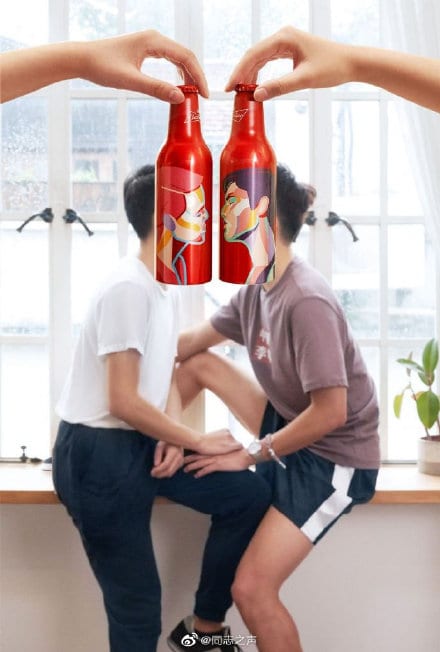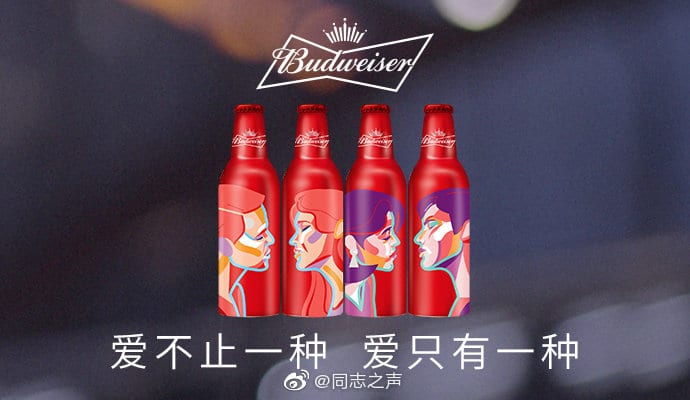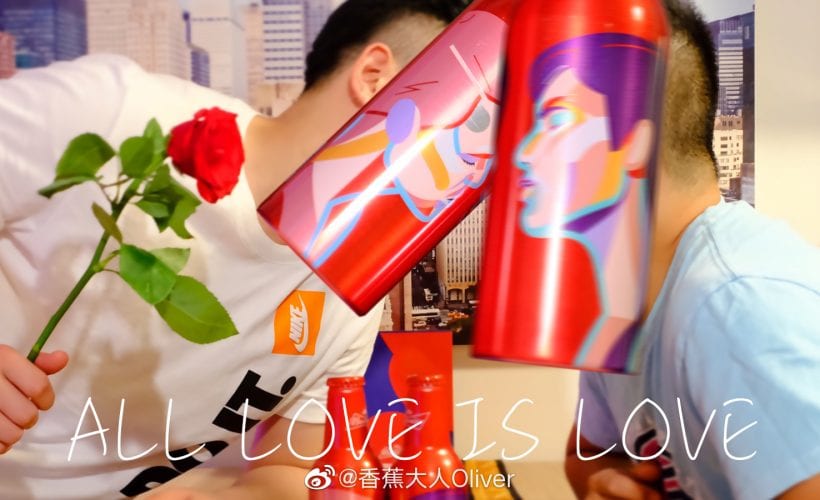
LGBTQ people continue to thrive on the internet, despite China’s regulations and censorship.
China is currently in the middle of the Qixi Festival. The festival honors the mythological meeting of the cowherd and the weaver girl. The romantic story honoring love and fertility has been celebrated since China’s Han dynasty (206 BC–220 AD). In many ways, the Qixi Festival is like Valentine’s Day in America. The single day (which is always on the 7th day of the 7th lunar month on the Chinese calendar) is noted throughout the week with celebrations of love and gifts such as flowers, candy, and more.
In order to celebrate the holiday of love (and profit from it), one beer company has released bottles with faces of men and women on the verge of kissing. But could the company have been implying more here? That’s what many Chinese citizens on the internet think as they’ve used the bottles to create an LGBTQ twist.

When Budweiser released its special Qixi Festival beer bottles, they promoted them as just heterosexual couples. But the company specifically used the term, “Love is Love” in its marketing. This possibly alerted LGBTQ people on Weibo, the Chinese equivalent to Twitter/Tumblr, to the bottles’ real purpose. These LGBTQ people then decided to combine the images of same-sex couples to promote the message of same-sex love.
In the viral photo trend, same-sex couples picture themselves on the verge of kissing and embracing. But, the bottles are used to cover their faces and depict the Budweiser faces in pre-lip lock.

Again, it appears that this was Budweiser’s intention all along. The Gay Voice, a popular account on Weibo that shares LGBTQ news with 1.5 million followers, spoke to Budwiser’s PR director Guō Wǎnpíng. Guo says the company intended to take advantage of this holiday to covertly share the message of love is love. The company’s Weibo page even started sharing these photos after they started trending.
“We are delighted to take advantage of this holiday to encourage people to celebrate their true love and be true to themselves,” Guo said specifically.

According to SupChina, many Weibo users have expressed positive views on the campaign and viral photo trend. This just shows how much LGBTQ people in China are thriving on online spaces while the Chinese government continues to censor them in real life and in entertainment media. But clearly, the government won’t get the final word on the issue.
Sources: SupChina, The Gay Voice
